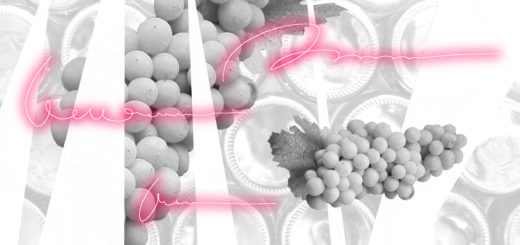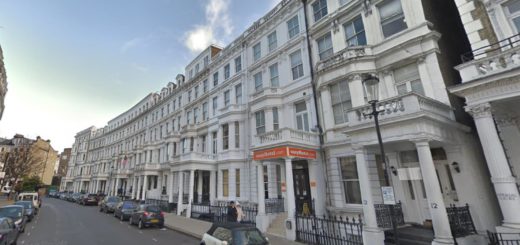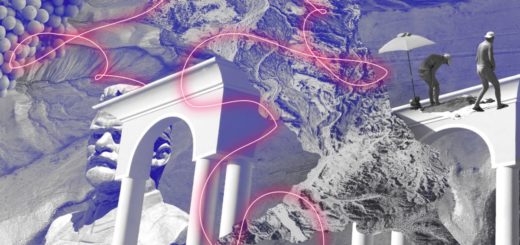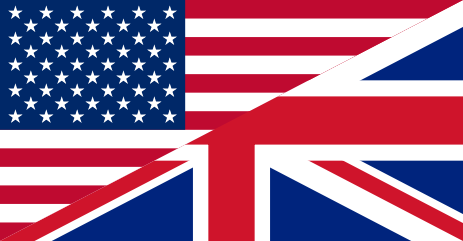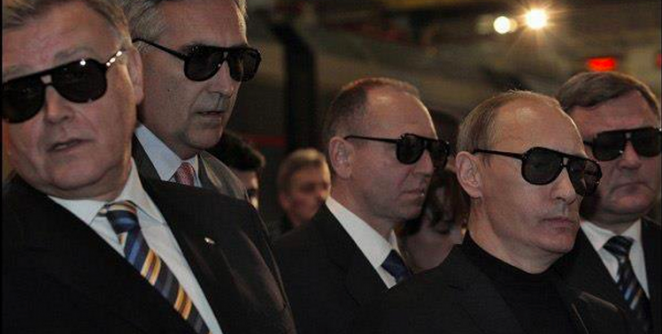Stashing away. How Klyuev brothers kept the solar power plants in Crimea
After the annexation of Crimea, two billion rubles, or $31 million, were earned by the owners of solar power plants on the peninsula – the “Solar” group, which is well known to Russian investigative journalists. It was established through a European offshore company by former Ukrainian influential officials – brothers Andrey and Sergey Klyuyev. Their companies received land on favorable terms during the presidency of Viktor Yanukovych. Power plants were built with loans from Ukrainian and Russian state banks, and electricity was sold to the Ukrainian state at prices five times higher than wholesale.
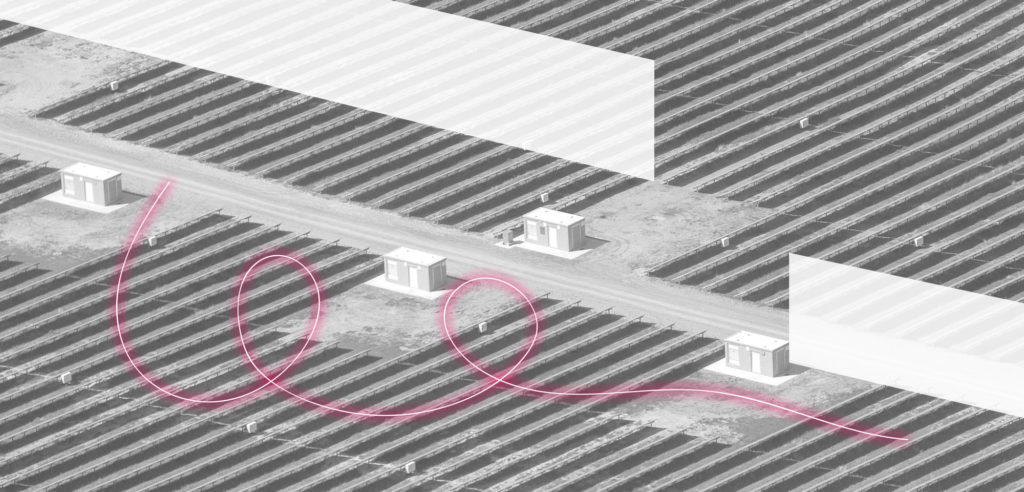
In 2014, difficult times came for the group: a drop in revenue, accusations from the banks, bankruptcy of enterprises. However, there is a lot of indirect evidence that the Klyuyevs retained control of the assets, re-registered them under Russian laws and continue to conduct business, despite the European sanctions.
Solar business of deputies Klyuev
Brothers Andrey and Sergey Klyuyev are people from the inner circle of the former President of Ukraine Viktor Yanukovych. The elder brother, Andrei, was the first deputy prime minister, deputy of the Verkhovna Rada and head of the presidential administration of Ukraine during the decisive period of the Euromaidan. The younger brother, Sergei, was until recently a deputy of the Verkhovna Rada and the formal owner of the Mezhigorye residence of Viktor Yanukovych.
Both brothers are now on the wanted list. Sergey Klyuyev is the defendant in cases of abuse of power, misappropriation of property, fraud and money laundering. The Security Service of Ukraine suspects Andrey Klyuyev of unlawful obstruction of peaceful protests, abuse of power and misappropriation of property. In 2014, the EU imposed personal sanctions against the brothers, but in the years 2018-2019 they lifted them – first for Sergey, and then for Andrey.
In Ukraine, Klyuyevs owned the “Ukrpodshipnik” group of companies, “Semiconductor Plant” and the Activ Solar company, which is registered in Austria. The latter built solar power plants in the Crimea, Odessa and Nikolaev regions. The Ukrainian public organization “Center for Combating Corruption” described the scheme of Klyuevs’ “solar” business: their companies received land for free when the brothers were in power, and received loans from Ukrainian state-owned banks.
In 2017, Deutsche Welle wrote that Klyuevs’ companies did not return almost 28 billion hryvnias or $1 billion to Ukrainian state banks (hereinafter, dollar amounts are indicated at average annual rates). The Ukrainian government had to cover the losses of the banks from the state budget. Journalists calculated that each Ukrainian taxpayer paid 2 thousand hryvnias (about $75) for the debts of the Klyuyev brothers.
Electricity was sold to the state at a special “green tariff” for renewable energy sources, which is five times higher than the wholesale price. The Verkhovna Rada adopted this tariff in 2009, when both brothers were members of the parliament.
At the time of the annexation of “Activ Solar”, Klyuyev brothers were managing four solar power plant complexes in Crimea and constructing two more.
“Phony and fraudulent” power plants
Accusations towards Klyuevs’ business were made not only by the Ukrainian authorities and state banks, but also by the head of Crimea appointed by Russia Sergey Aksyonov. As early as May 2014, he called “Activ Solar” power plants “fraudulent” and “phony” and said that they had accumulated $300 million in debt to Russian state-owned banks. A year later, Kommersant wrote about €800 million in debt. The debt in question came from the loans that the companies of “Activ Solar” group took from Vneshtorgbank and Sberbank through their Ukrainian branches. Aksyonov supposed that state-owned banks may take over the solar power plants towards the costs of the loans.
From November 2014 to February 2015, the owners re-registered the solar power plants in Crimea in accordance with the Russian laws. In total, 34 companies were entered into the state register. Their names match their counterparts from the Ukrainian registers.
In the spring of 2015, “Activ Solar” informed DW that it was no longer involved in the solar power business. A year later, “Activ Solar” and another Klyuyevs’ company, Slav Handel (both Austrian) filed for bankruptcy. It is known that in 2016, the solar power plants of “Activ Solar” in Odessa and Mykolayiv regions were acquired by the Chinese state company CNBM.
Bankruptcy cases
The owners of the power plants in the annexed Crimea turned out to be different companies with similar names.
As soon as the Russian courts started operating on the peninsula, the Russian state-owned banks VTB and Sberbank began to make complaints to the companies that owned the solar power plants. The courts declared eight companies bankrupt, and bankruptcy trustees began to work in them.
The bankruptcy trustee of “Omao Solar”, Andrei Selyutin, told Current Time that he and his colleagues are also handling the cases of “Oul Solar”, “Osprey Solar” and “Delta Solar” – all of them are members of the “Solar” group. The main creditor for these companies is the Russian Sberbank, he added. According to Selyutin, in aggregate, these companies owe about 5 billion rubles (about $77 million) to the state bank. He found it difficult to say whether the property of the companies was enough to pay off all the debts.
“There will be open bidding, it will depend on whether there are buyers. The sale of the companies is likely to take place in 2020”, – explained the bankruptcy trustee.
But after the eight companies of the group were declared bankrupt, the existing enterprises of “Solar” entered into litigation with them. They tried to collect millions of debts on previously concluded transactions. Accusations agaist bankrupt companies were made, in particular, by the managing company of the “Solar” group of companies, “Power Services”.
Bankruptcy insolvency executives insisted: these deals are capital withdrawals. According to their version, with their help, the founders of the companies tried to ensure that the real creditors did not get the capital.
For example, in August 2014, “Oul Solar”, which subsequently went bankrupt, signed an agreement with Power Services to operate a power plant and transferred a total of 93 million rubles (at the exchange rate for 2016, when the last payments were made, $1.3 million). In the summer of 2018, the bankruptcy trustee of “Oul Solar” requested the 21st Arbitration Court of Appeal, controlled by Russia, to declare the transaction invalid. However, he lost the case.
The bankruptcy trustee of “Omao Solar”, Andrei Selyutin, told Current Time that he also contested in court one transaction that he considered to be a money withdrawal.
“The work performed at the station did not meet the criteria of necessity and efficiency. In essence, they weren’t supposed to [fulfil them], but a substantial amount of money was at stake. The court declared the transaction invalid and ordered the return of funds”, – Selyutin said.
However, the company has not yet received the money that the court ordered to pay, he said.
Among the companies involved in such processes is Kiev-based “System Power Engineering”. For example, in August 2018, it demanded 5.5 million rubles ($87 thousand) from the bankrupt company “Zeta Solar”.
Claims to the companies of the “solar” group were also made by the “Depositor Protection Foundation”. This is an organization created by the Russian authorities of Crimea that pays the Crimeans the deposits of Ukrainian banks. It collects the loans issued by Ukrainian banks from Crimean borrowers. The fund wanted to recover almost 25 billion rubles, or $374 million at the 2016 exchange rate, from the companies managed by “Power Services”.
Upon analyzing these lawsuits and the activities of the companies that filed them, Current Time discovered that the “solar” business associated with the Klyuev brothers continues to operate in Crimea
EU sanctions and Klyuyevs’ assets
Among the founders of each of the companies operating the power plants of “Solar” in Crimea are companies from the Netherlands, Austria and Cyprus. These are all EU member states, and their companies are required to comply with sanctions restrictions.
“Power Services” was registered in March 2015 in Moscow. Its sole owner is Greentech Energy Services LTD from the British Virgin Islands (BVI). Who exactly is its beneficiary is unknown – information about the founders is only provided by the BVI government at the request of the tax authorities.
In December 2014, the European Union banned European companies from working in the energy sector in Crimea. Maya Lester, a Brick Court Chambers Queen’s Counsel from Great Britain, told Current Time that although the British Virgin Islands are not EU members, Brussels’s decision extends to them.
“They are subject to UK’s decisions on foreign policy issues. Thus, sanctions are directly applied to all overseas territories and crown lands by the order of the Council”, – Lester explained.
There is also indirect evidence that “Power Services”, which controls the solar power plants on the annexed peninsula, is still owned by the Klyuyev brothers.
- Until 2015, Greentech Energy was in the Ukrainian register of legal entities with an office in Kiev – the current founder of “Power Services” has a similar name. Now it is registered on three private individuals. In December 2013, one of its owners was the very Greentech Energy Services LTD from the British Virgin Islands. In 2015, the Kiev company was renamed to System Power Engineering. Until 2012, Sergey Kolobov was the director of Greentech Energy. Until 2011, he led the company “Crimea Solar”, one of the assets of the Klyuevs’ “solar” business. And after the annexation, Kolobov managed to work as the head of the peninsula’s Ministry of Energy.
- The company “Power Services” is registered in Moscow. But in Simferopol, a subsidiary of “Power Services”, the “Charity Fund for Good Deeds”, is registered at 44a Rubtsova Street. Co-founder of the fund Igor Shutov was previously the chairman of the board of “Artyomovsk non-ferrous metals processing plant” – one of the assets of the Andrey Klyuyev’s “Ukrpodshipnik” group. In addition, as of December 2017, he was First Deputy General Director of “Power Services”. The majority of companies operating the solar power plants are registered at 44a Rubtsova Street in Simferopol. As of October 2019, the “Charity Fund of Good Deeds” is under liquidation.
- After the annexation of Crimea, Sergei Rozya, the founder of the four companies of the Solar group, was tried for assistance in document forgery. Rozya received a fake certificate of acquisition of Russian citizenship, and later the passport of the Russian Federation in Simferopol in the office of Power Services, the court decision states.
- Most companies have email addresses at the powerservices.ru domain listed in their register entries.
What solar power plants operate in Crimea
At the time of the annexation of Crimea, the “Activ Solar” group had built four complexes of solar power plants: “Rodnikovoye”, “Perovo”, “Mityaevo” and “Okhotnikovo”. In January 2012, “Perovo” power plant was the most powerful solar power plant in the world –it could supply 105 MW⋅h of electricity to the network every hour. The group also was also building the “Vladislavovka” solar power plant.
Companies managing solar power plants often have the same executives. For example, Yuri Kashich is a director in nine companies of the group. Their owners are Cypriot and Dutch firms. The power plants sell the electricity to “Krymenergo”. As of today, it is owned by the Crimean government, which is controlled by Russia. Before the annexation, it was called “DTEK Krymenergo”, and owned by a prominent Ukrainian businessman Rinat Akhmetov.
“Rodnikovoye”. The owner of one of the complex’s power plants is “Crimea Solar 4”. In the Russian and Ukrainian registries, there are companies called “Crimea Solar 1” and so on up to “Crimea Solar 5”. All of them belong to two Austrian companies, CEE Clean Economic Energy and Black Sea Renewable Energies GmbH. All “Crimea Solar” companies have a common address on Rubtsova Street in Simferopol, four out of five have the same director.

Current Time has found out that all “Crimea Solar” companies have a similar judicial history. The Russian “Depositor Protection Fund” is trying to collect their debts to the Ukrainian state banks and seize their accounts and property. However, the Supreme Court of Russian Federation has continuously dismissed the claims against all five companies. In May 2018, the 21st Arbitration Court of Appeal in Sevastopol, controlled by Russia, refused to arrest the accounts of “Crimea Solar 4”. The judge explained that “the activities of OOO «Crimea Solar 4» in the production of electric energy help cover the electricity shortage in the Republic of Crimea”.
Thus, the court confirmed that “Crimea Solar 4”, which is registered on Austrian companies, continues to generate and sell electricity in Crimea, despite the EU sanctions prohibiting this. In total, five state companies with names including “Crimea Solar” earned 42.9 million rubles or $652 thousand after the annexation of Crimea.
“Okhotnikovo”. Now one of the stations of the complex is registered on “Oriol Solar”. Before the annexation, three more companies were associated with it: “Osprey Solar”, “Omao Solar” and “Ousil Solar”. Similarly to “Crimea Solar 4”, the court refused to arrest the accounts and property of “Oriol Solar”. After the annexation, the companies signed government contracts with “Krymenergo” worth 440 million rubles or $6.6 million. The owners of all four enterprises are Dutch Hyperion Netherlands B.V. and Cypriot Milidenio Holdings LTD.

The companies “Osprey Solar” and “Omao Solar” were declared bankrupt by a Russian-controlled Crimean court, they are currently in the process of liquidation.
Bankruptcy trustee of “Omao Solar” Andrei Selyutin told Current Time that despite the bankruptcy of the company, the power plant associated with this company continues to operate.
“Since the company carries out business activities, in addition to income, it also has the costs associated with the repair. The remaining money will be used to repay the claims of creditors”, – he explained.
“Perovo”. Before the annexation, the power plants were registered on five enterprises: “Alfa Solar”, “Beta Solar”, “Gamma Solar”, “Delta Solar” and “Zeta Solar”. The founders of the first three and “Zeta Solar” are the Cypriot Ournia Commercial and the aforementioned Sergey Rozya, who was tried for fraud with Russian citizenship. The owner of “Delta Solar” is the Cypriot Black Sea Renewable Energies.

In 2018, all five companies were declared bankrupt by Russian-controlled courts. From the beginning of the annexation until bankruptcy, the companies have signed government contracts with “Krymenergo” worth a total of 581 million rubles – almost $10 million.
“Mityaevo”. Before the annexation, the power station in the village of Mityaevo was registered under Ukrainian law on the private joint-stock company “Oul Solar”. The founders of the company are the aforementioned Hyperion Netherlands B.V. and Milidenio Holdings LTD. In May 2017, the company signed a govenrment contract with “Krymenergo” worth 169.8 million rubles or $2.9 million. Since January 2018, “Oul Solar” is in the process of liquidation.

“Nikolaevka”. Before the annexation of Crimea, according to the investigation by the “Center for Combating Corruptio”n, PepWatch! and “Our Money”, the companies “Orion Solar”, “Kapella Solar” and “Clarion Solar” were associated with this complex of solar power plants. All three companies, as Current Time has found out, are now operating and registered in accordance with the Russian laws.
“Kapella Solar” and “Orion Solar” have common founders – the aforementioned Cypriot Milidenio Holdings LTD and Krasolena Investment LTD. The founders of “Clarion Solar” are Milidenio Holdings LTD and another Cypriot company – Koltreso Commercial.

In March 2017, “Kapella Solar” and “Orion Solar” sold 226 million rubles (or $3.9 million) worth of electricity to “Krymenergo”. In January 2019, “Jupiter Solar” sold 84.6 million rubles worth of electricity to “Krymenergo” – this is approximately $1.3 million. The founders of the latter are the same Cypriot Krasolena Investment and Milidenio Holdings.
“Vladislavovka”. Theodosian news website Kafanews wrote that in 2011 Crimean Council of Ministers allocated 50 ha of land for rent to “Bora Solar” and “Calypso Solar” and 40 ha each for “Kanari Solar”, “Clarion Solar” and “Lennet Solar” for construction of power plants. A share of five to six millionths of a percent (0.000005-0.000006%) in each of the companies belongs to Milidenio Holdings. In “Bora Solar” and “Canari Solar”, the main owner is Midesiano Investments, in “Clarion Solar” and “Calypso Solar” it’s Koltreso Commercial, and in “Lenneth Solar” – Samelina Investments.
As of March 2019, the power station has not yet been commissioned.

The management of Power Services did not respond to a request for Current Time. Journalists also tried for several months to contact the Klyuyev brothers through assistants and lawyer Sergey Klyuyev and former press secretary Andriy Klyuyev. At the time of the publication of the investigation, the editors did not receive a response from any of them.
